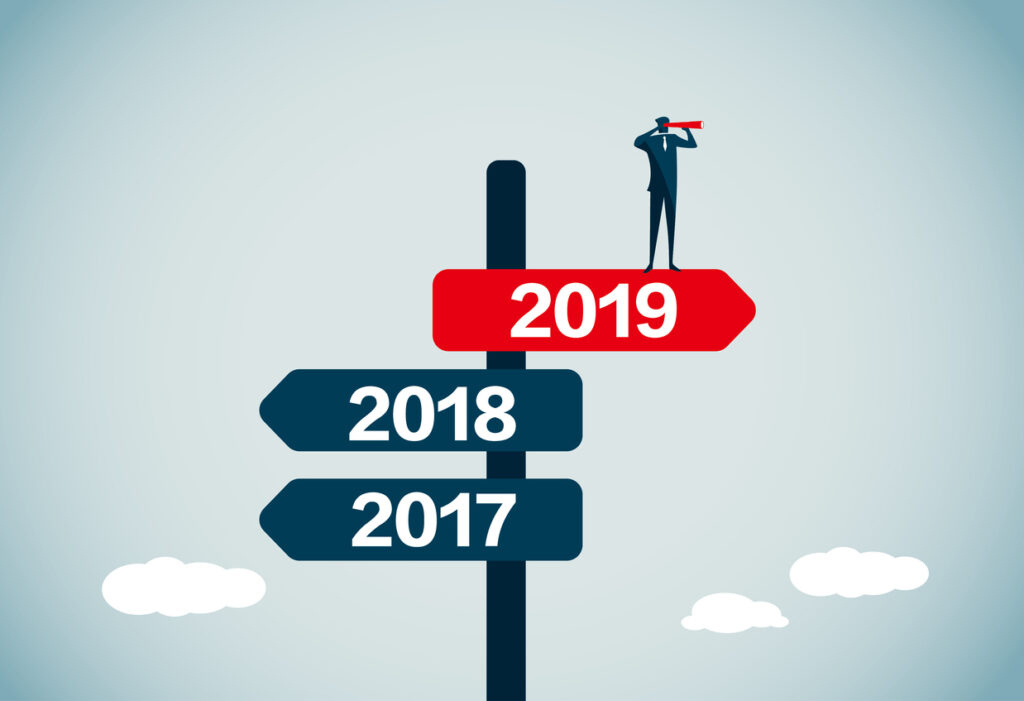Developments in technology and changes in how we view employee management are transforming the HR industry, with an emphasis on talent acquisition, retention and improving workplace culture.
With reporting and recruiting software, employee data, and social media at our fingertips, HR departments have a world of possibilities to explore. While these developments are already in full swing, 2019 will be a period of rapid development as companies devise and implement new strategies.
In 2018, most recruitment teams were familiarising themselves with the concepts of artificial intelligence and machine learning. In 2019, we’ll continue to see the maturation and mainstreaming of AI functions across the full recruitment lifecycle.
In 2019, we’ll continue to see the maturation and mainstreaming of AI functions across the full recruitment lifecycle.
Globally, sourcing high-quality candidates for key roles will continue to be a key competitive advantage. A barrier to this is the implementation of HR technology alongside finding the right talent in the face of skills shortages.
Investing in technology
According to our recent talent acquisition 360 study, only 10% of companies identified new technology implementation as a priority – a critical part of any talent acquisition strategy.
While companies assess their talent acquisition function and strategy, they need to get back to the basics and focus on what drives results. New technologies do contribute to and assist in resolving hiring challenges but the key will be how to maintain the human element in the recruitment experiences for candidates, hiring managers and stakeholders.
To capitalise on this potential, talent acquisition will make implementation of AI a business imperative, shifting focus away from the mundane tasks that have historically overburdened the function.
Talent acquisition
Talent acquisition leaders, have a tremendous opportunity to free up recruiters by replacing the repetitive or invisible tasks (e.g. manual searches) with AI technologies. In doing so, recruiters can spend more time on meaningful interactions with candidates or hiring teams, and other higher-value human activities.
Simultaneously, HR teams need to get ahead of the curve with AI and understand not only the impacts on their workforces, but also the benefit of incorporating new tools into their workflows, especially for recruitment.
Recruiters can spend more time on meaningful interactions with candidates or hiring teams, and other higher-value human activities.
Technology, automation and AI has impacted HR in many ways over the last decade, and the impact will continue to accelerate. Technology has reshaped some areas of the recruitment process, enabling talent acquisition teams to be more efficient and wiser with their time.
Although many recruiters view AI as a potential threat to their jobs, it’s the opposite; the ever-evolving technology behind AI makes recruiters’ lives easier. Advances have already had a huge impact and will continue to influence recruitment strategy and process – including removing the administrative, manual tasks from recruiters’ to-do lists so they have time to manage the human element of the process. The benefits are huge because they will help potential candidates who are looking for jobs have a more seamless experience.
Finding the right system
Given the significant changes impacting the HR technology industry, it can be overwhelming for HR and recruiters to determine which systems meet their HR organisation’s needs. It’s often difficult to grasp what’s new before there’s already another something new on the horizon.
With promises of easy fixes and stress-free implementation, it’s important to determine which solutions will solve your talent challenges and business needs. We expect that the dynamics of organisations will continue to change by accommodating new working styles and a more distributed network of talent.
Transformation
The role of talent acquisition is evolving. For several years, it has been emerging from its silo of filling headcount to becoming part of an overarching talent strategy. The demand for niche skills is set to hasten the transformation even more, making talent acquisition functions critical in ensuring organisations have the talent they need to be productive and profitable.
This means more than developing talent acquisition strategies or enhancing relationships with hiring teams – a substantial shift in behaviours and business integration will fuel talent acquisition with organisations keen to embrace the possibilities.
A substantial shift in behaviours and business integration will fuel talent acquisition.
Without transformation, talent acquisition will not be able to effectively meet future workforce demands and sustain organisational performance. By shifting its mindset and adopting new tools to enable greater productivity and continuous improvement, talent acquisition will make an increasing impact.
There will be barriers to transformation that will require a fundamental change in the way organisations view talent acquisition. However, once the talent acquisition function bolsters its ability to innovate and drive agility, there will be a huge impact on speed, efficiency, and the company’s bottom line.






